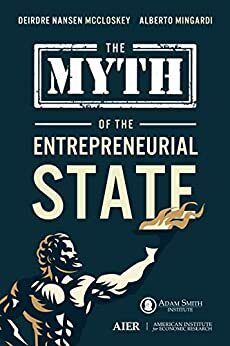The Corona Crash. How the Pandemic Will Change Capitalism
Always you may find a prophet around the corner. Fukuyama predicted the end of history, the triumph of liberal democracy and the arrival of post-ideological world. Recently Y. N. Harari predicted the end of liberalism and the arrival of a post-humanism and nothing happened. The history goes on and some of them only may expect that their predictions transform into self-fulfilling prophecies. This is the case of today's book. It distorts reality to adjust to the ideology and desires of the author. I must say that some parts may be true, but on the whole, reading it is a waste of time in my opinion. Just some pieces, and you may judge:
In this context, the suggestion that governments must refrain from ‘interfering’ in the forces of free market competition to create jobs, reduce inequality and increase environmental sustainability is laughable. We do not live in a competitive economy – we live in a planned economy. But the planning is not democratic – it is being undertaken by central bankers, senior politicians and their advisors in big business and finance.
For the rich world, the lesson of the coronavirus crisis is that states can spend to meet the needs of their populations without limit. For the vast majority of the world’s population, this crisis will simply reinforce what they already knew: that the poorer, less powerful members of the international ‘community’ most certainly can’t. Socialists in the Global North must learn the right lesson: that the limits of fiscal policy are determined by political power. International solidarity requires us to return to the issue of debt forgiveness and push for relief for Global South states when this crisis is over.
The free market ideology which serves to legitimise forms of government intervention that support the interests of capital and prohibit state interventions that might increase the power of workers has been placed under significant strain in the period since the financial crisis. As we have seen, the foundation of this ideology is the separation between politics and economics.
You may remember that with the great recession there were voices saying that capitalism was in crisis and there was a need to rebuild it. And?. Any system lives in continous unstability. This is not the end, it needs an urgent fine tuning right now but absolutely different from the book proposal.










